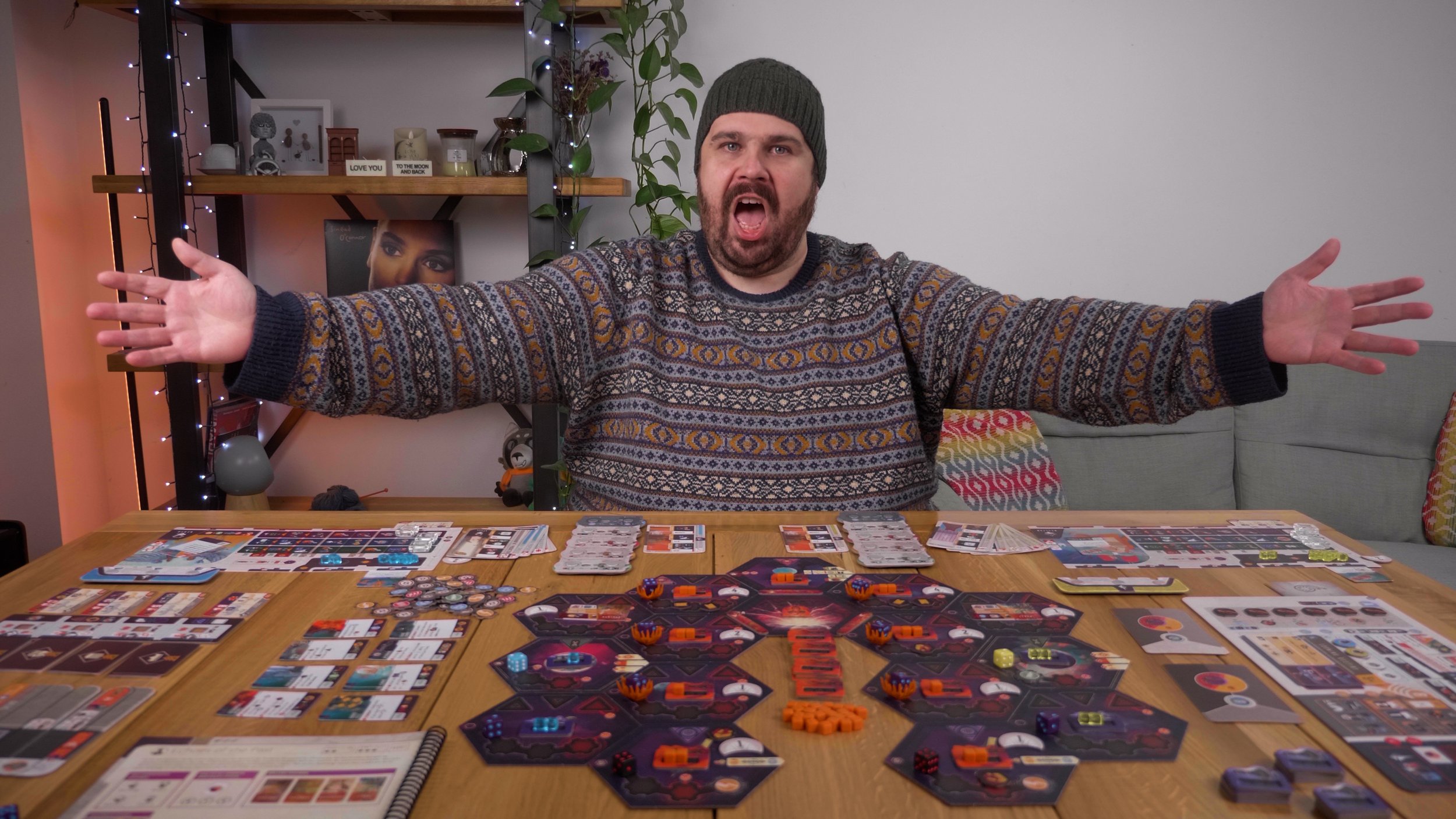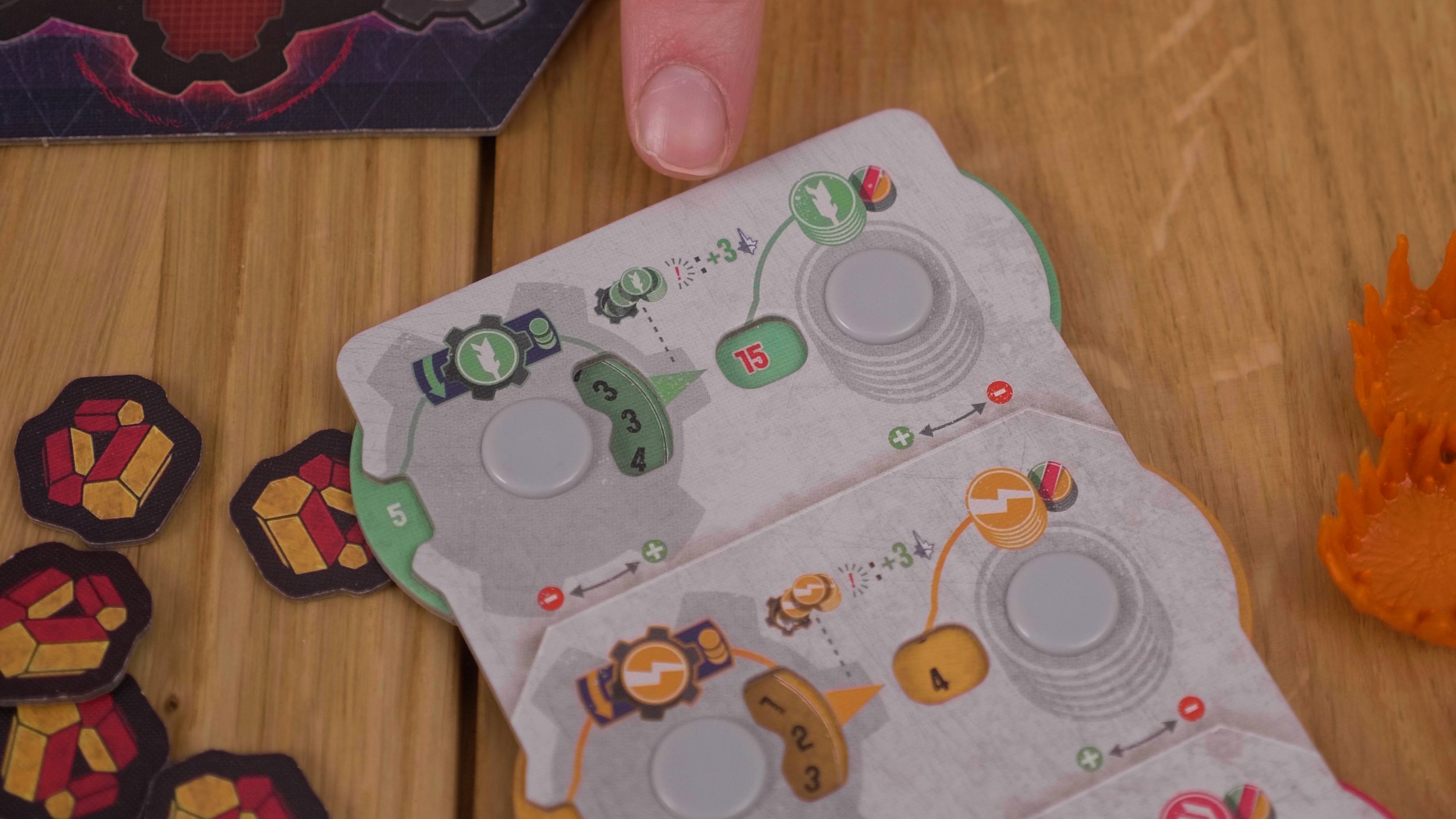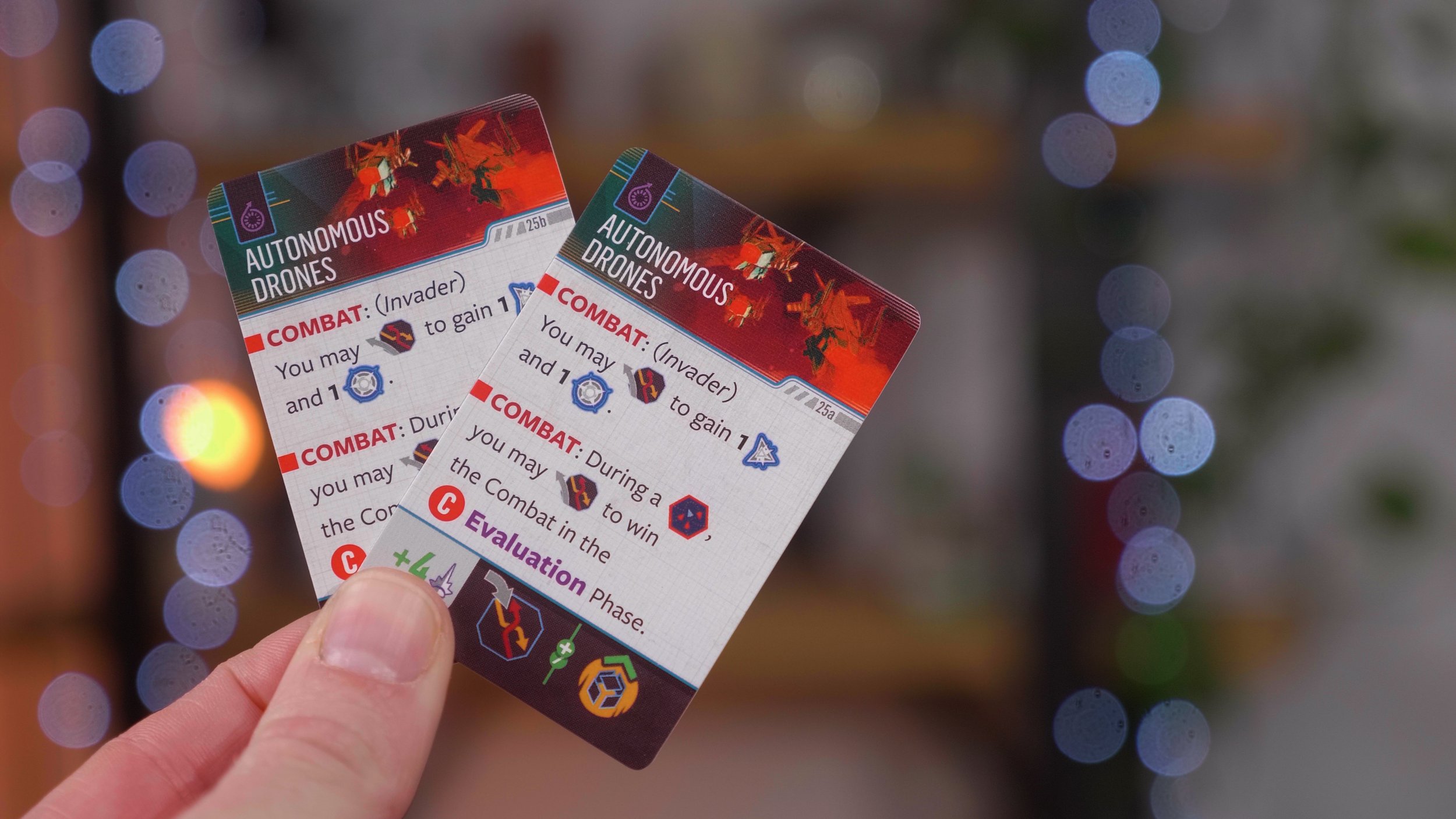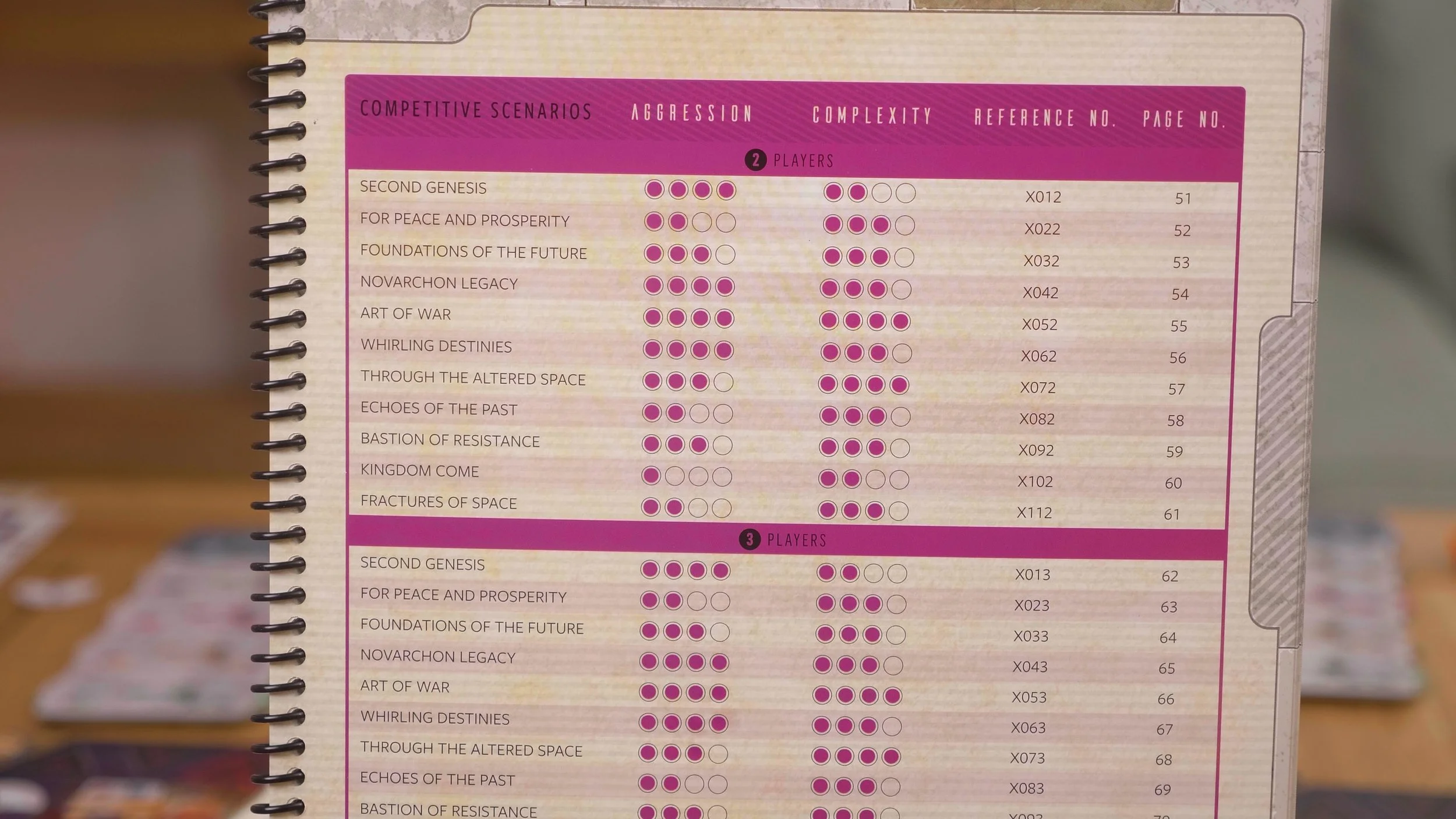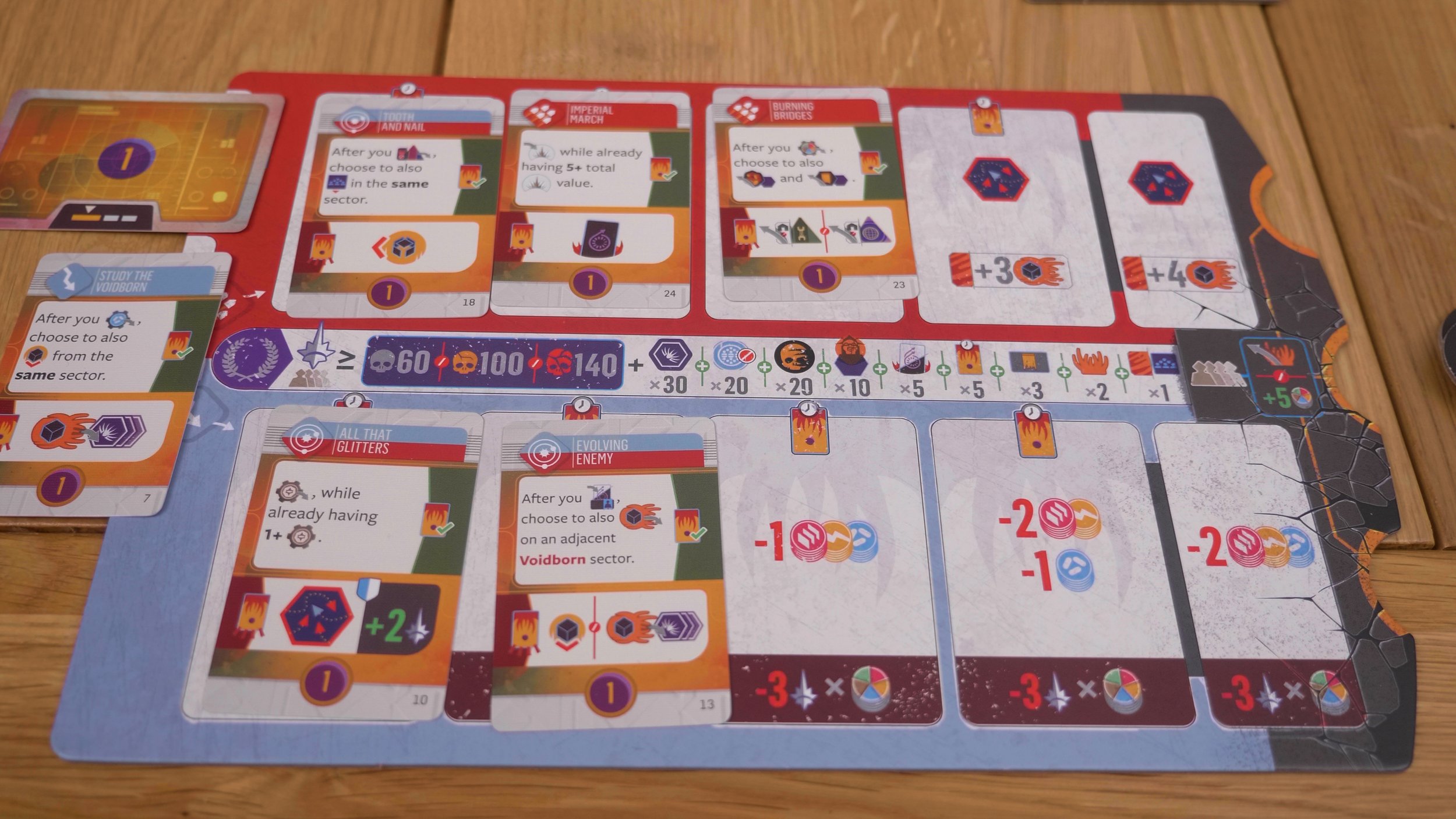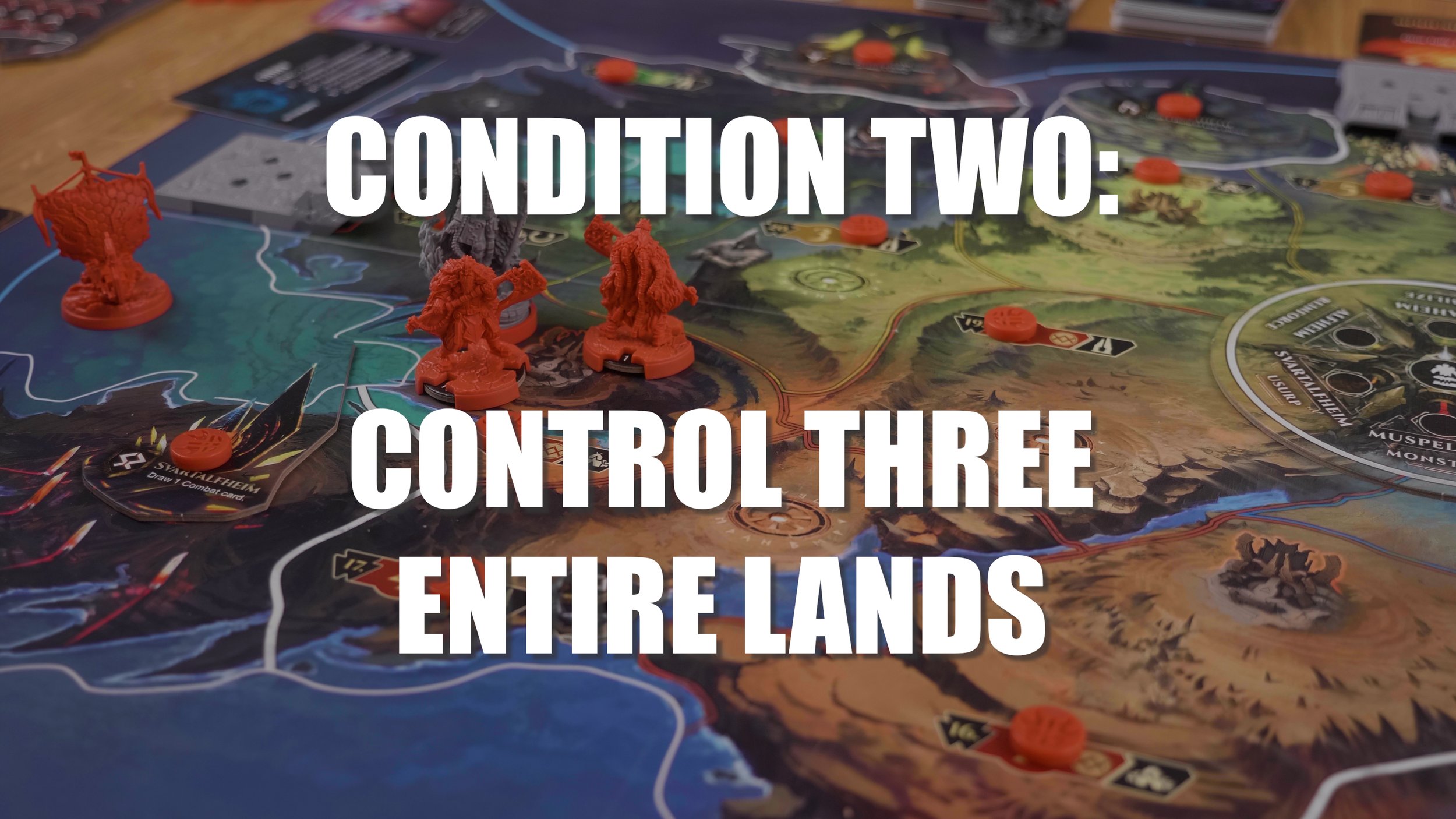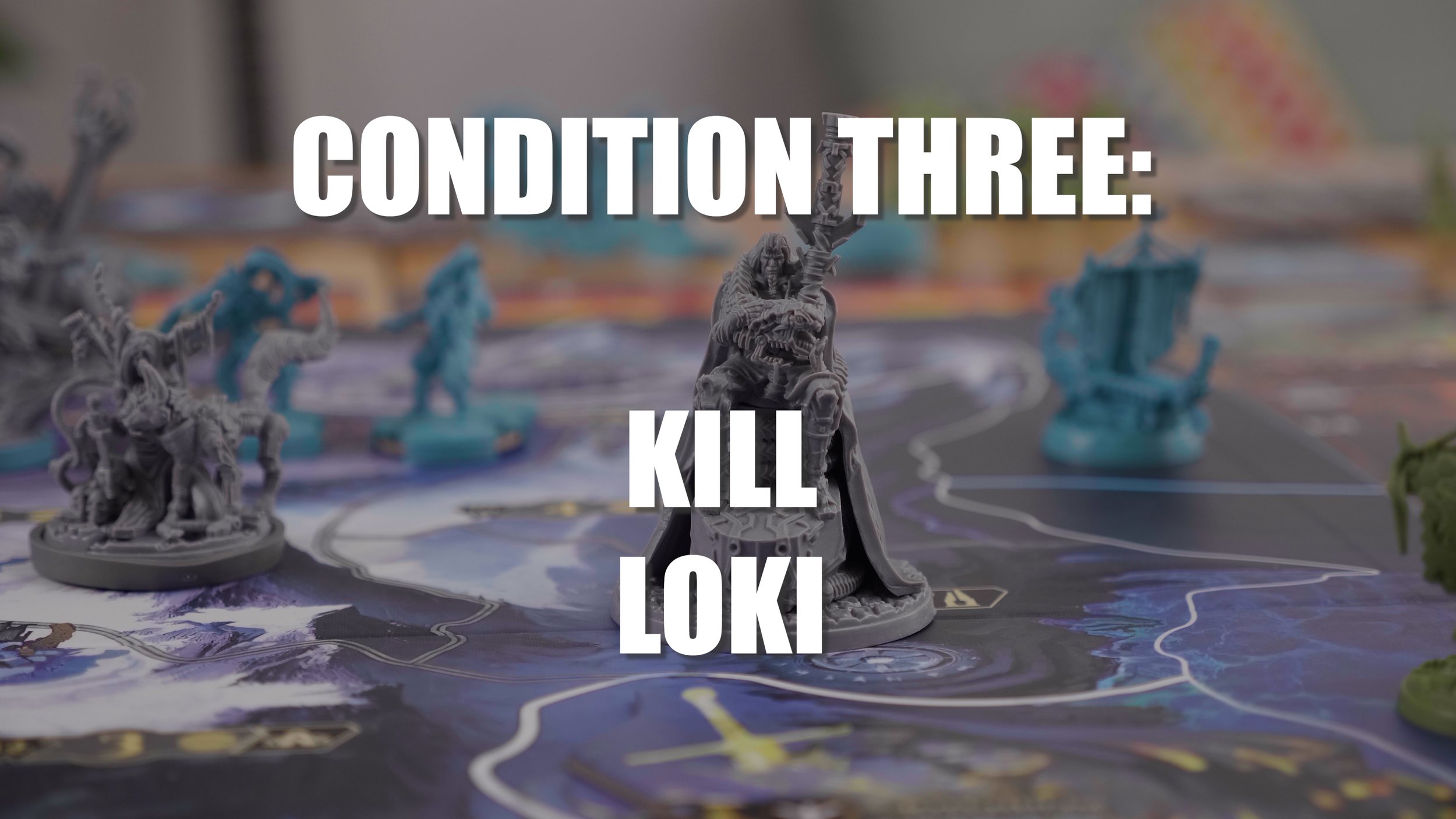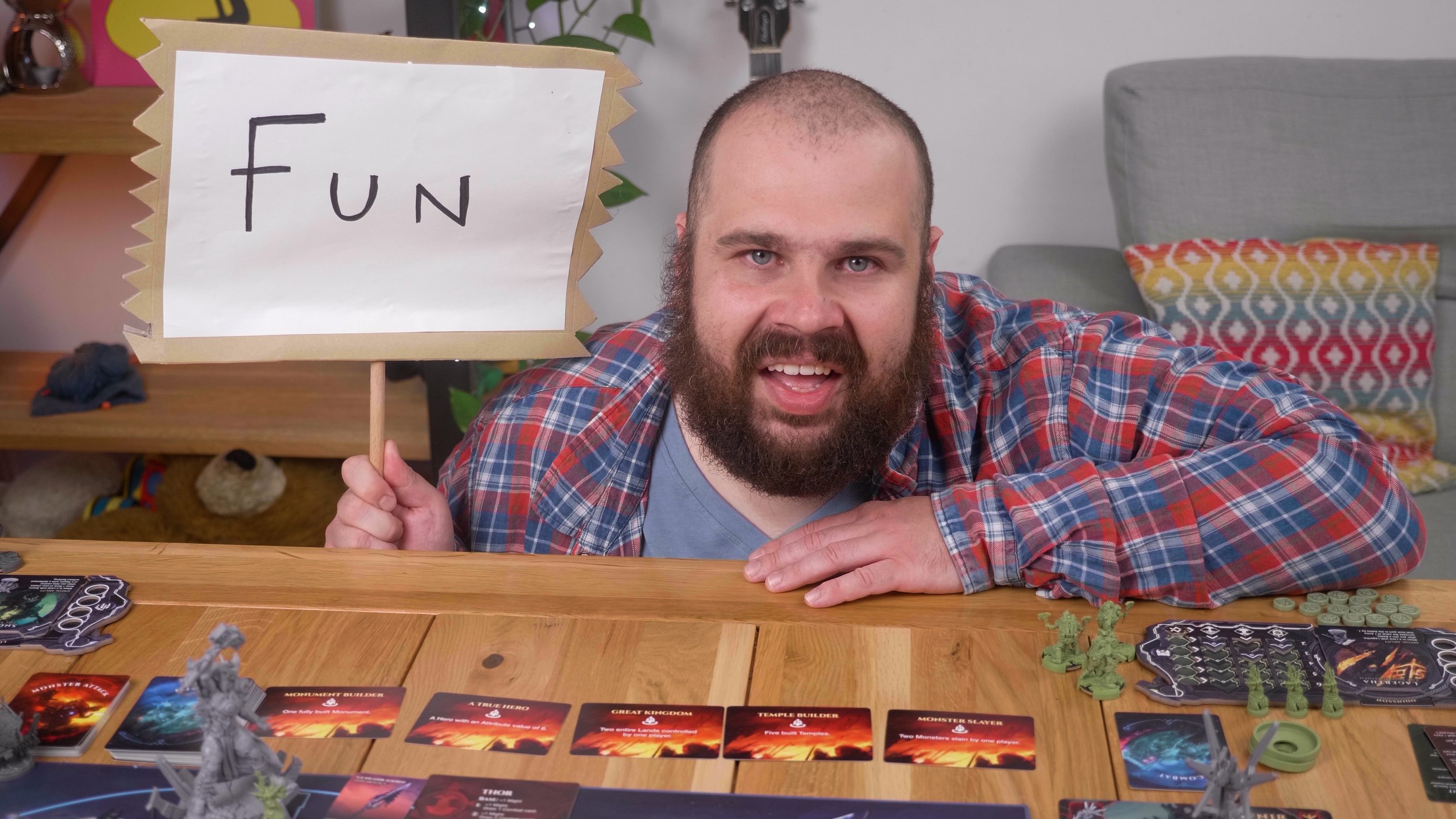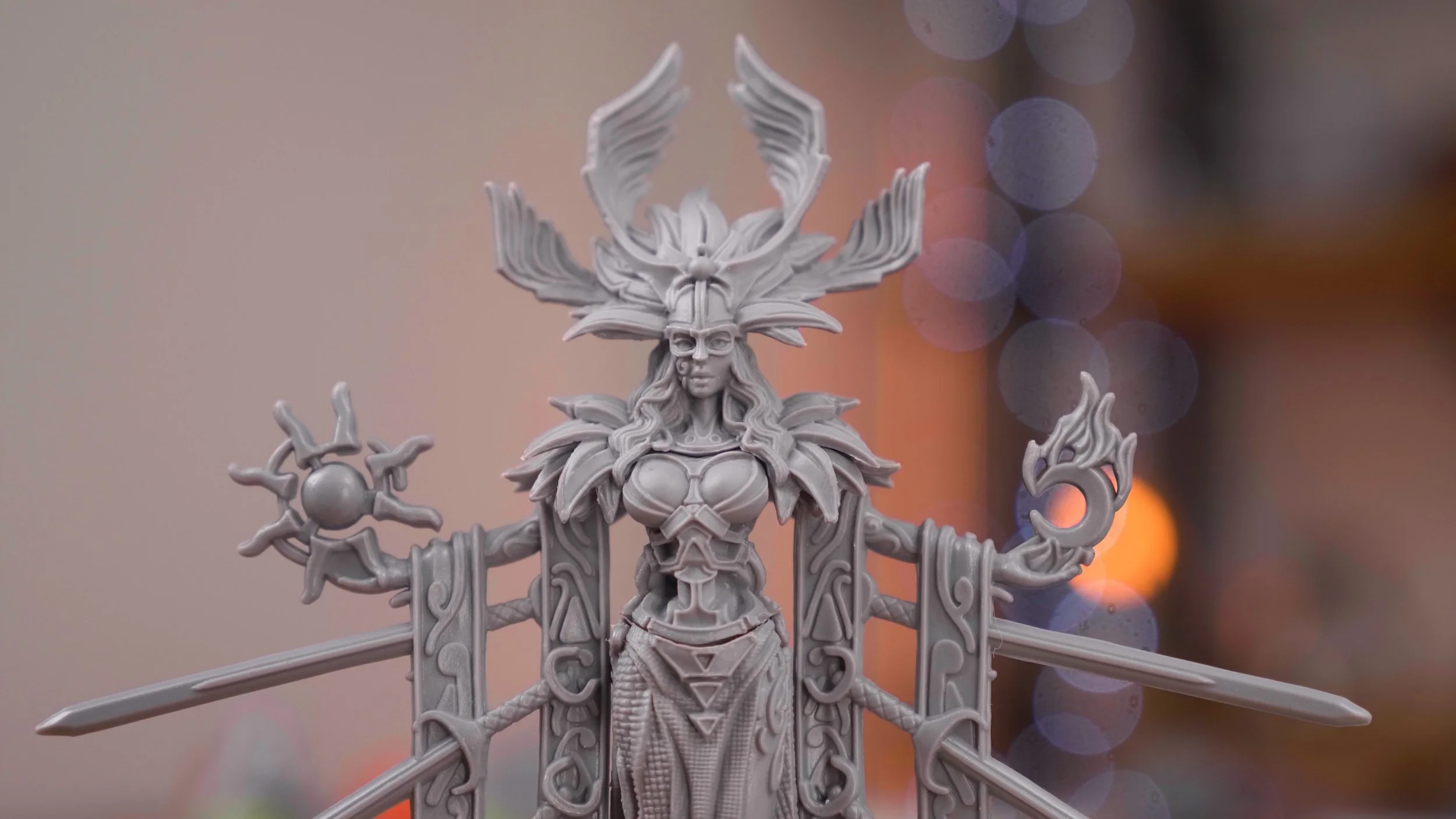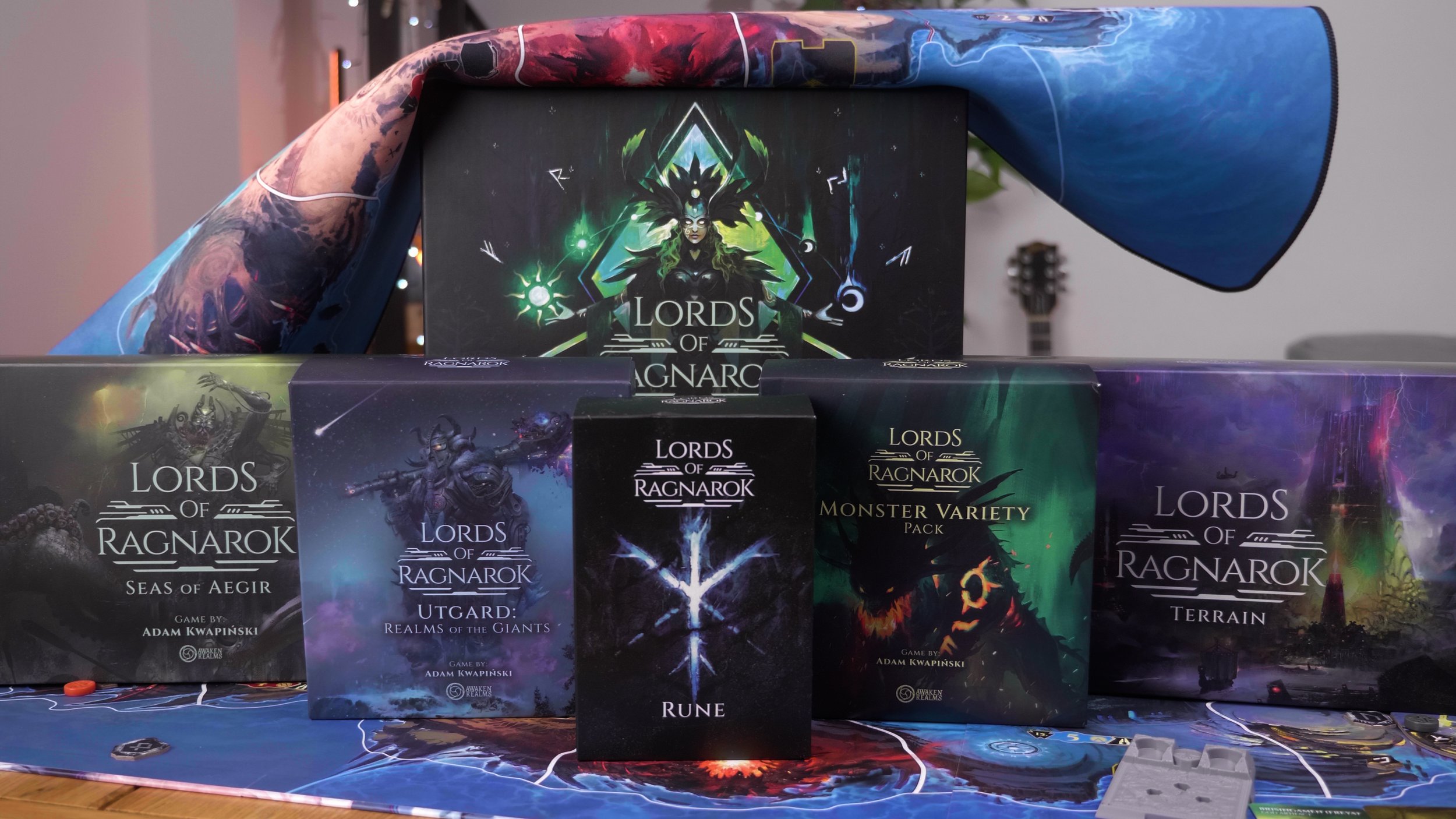When cards pile up on the doom board - not the official name - they increase the severity of punishment at the end of every cycle, and then if they fill up the doom board they can trigger a catastrophe. Three of those and you lose the game.
I'm avoiding explaining a majority of the rules but the gist of it is that on top of playing this complicated euro game, you're also constantly bombarded with extra things you need to concern yourself with.
And it's not without its intrigue. You could, for example, fill up this doom board with cards and then, with one masterminded action, clear all of them. But it increases the mental load by about 50% for a game that was already 300% of an average euro game.
And on top of that when you check whether you won, you check against the score of the lowest scoring player, which is an abominable rule. The game points a finger at one person and says 'Hey, it's your fault we lost. Feel bad.'
Naturally with this increased load you just can't have a combat system that is anything but deterministic. After all this workout of working things out, the last thing you want is to lose because of a dice roll. Which would be fine in a competitive game. If one person hubrisses it, that's a story. But if it affects the entire table, that's just the game making everyone feel miserable.
At the start of this video I said that there's two criticisms that people will have for this game: that it's too complicated which, I mean, that's just what it is - people enjoy that. And that it's a euro game dressed up as Twilight Imperium.
And you know what? As simplistic as that criticism is, I think that second one is true. That euro game core is a clever, complex puzzle. It feels good to explore it. But everything bolted on top of that euro game feels like a weird mismatch. It strains the design and makes it gloopy so that it can fit into a mold that it was never meant for.
Listen, I don't begrudge this game having a cooperative mode or a solo mode. I bet there's hundreds of you leaving a comment right now saying 'But "insert mode" is my favourite mode!' and that's legit. I don't want you to not have it, I just want you to imagine how much better this game would be if instead of having to develop all the others, it would *only* be 'insert mode' and the design space didn't need to accommodate a car that's also a boat, and also an aeroplane.
In a world where Agricola and Caverna exist, in a world where some people own one or the other or both, I cannot see why Voidfall couldn't have been two distinct games, each leaning into the strengths of what they are trying to achieve.
But that's what games are like right now and it all comes back to my favourite subject - crowdfunding. Let's face it you can't rely on people to be excited about your game and shout about it from the rooftops. But gaming the crowdfunding algorithms, by including every conceivable mode and 5,000 content, all but guarantees at least moderate success.
And thus, we have the contentification of board games. Hey, it's like the title of the video! I want games to be made for people, and not for computers. And I know some of you are like 'I don't see the problem'. No, this is precisely the problem. This is a good game but it has the potential to be a truly astounding one. I can see it in there I just can't fish it out from all the debris of modes and content.
And I don't mean to imply some cynical ploy here, in fact the opposite. It is absolutely clear that Mindclash put so much care into this game - more than I see most publishers do. This is a labour of love.
I just wish that that labour was better applied.
In fact, I think most publishers by now feel the same way about all this extra cruft, they just see it as a necessity to survive in the crowdfunding environment. They need to contentify their board games. They need to make it so that everyone will like this one game forever ... until they buy another one one week later.
Anywho, that's it. I once again reiterate I like Voidfall. I think it's pretty good. This is a positive review, I just went on a tangent about this one thing that I didn't like. And if that outrages you, by all means absolutely please leave those angry comments that boost the visibility of this review, and get immediately deleted anyway.
If you enjoyed my tangent and want to support tangent work, we are entirely independent from publishers - supported just by people like yourselves, who watch us and give us some money every month. So please extend your own financial tangent towards our Patreon.











